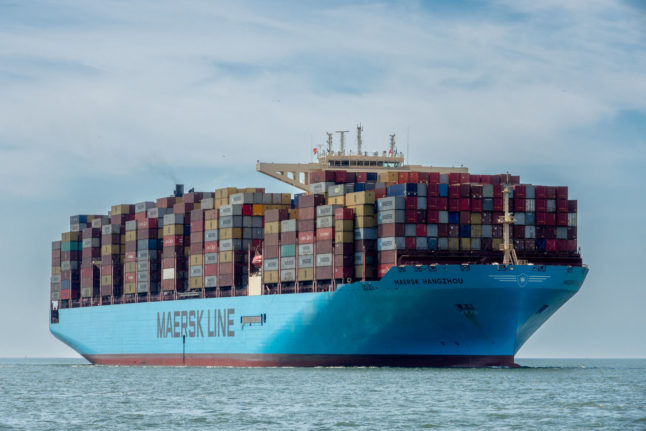The Danish company cited the highly volatile situation and noted that the security risk remains high.
“We have therefore decided that all Maersk vessels due to transit the Red Sea/Gulf of Aden will be diverted south around the Cape of Good Hope for the foreseeable future,” it said in a statement.
On Tuesday, the shipping giant said it would not resume passage on the route “until further notice” after putting it on hold over following an attack on the Singapore-flagged Maersk Hangzhou.
On Sunday, the Denmark-owned and operated container vessel, which was travelling from Singapore to Port Suez in Egypt, reported being struck by a missile while transiting the Bab al-Mandab Strait.
It was then attacked by four ships operated by Yemen’s Iran-backed Huthi rebels, which “engaged fire in an expected attempt to board the vessel”, the Danish shipping company said.
The US military said navy helicopters sank three of the ships while the fourth fled.
Since November 18th, 25 commercial vessels operating in the southern Red Sea and Gulf of Aden have been attacked.
On Wednesday, 12 nations — led by the United States — jointly urged Yemen’s Huthi rebels for an “immediate end of these illegal attacks and
release of unlawfully detained vessels and crews,” while warning of “consequences”.
With 12 percent of world trade passing through it, according to the International Chamber of Shipping (ICS), the Red Sea is a “crucial waterway” linking the Mediterranean to the Indian Ocean, and hence Europe to Asia.
Some 20,000 ships pass through the Suez Canal every year, the gateway for ships entering and leaving the zone.
This is the second time that Maersk has suspended shipping through the strait.
In mid-December, like other global shipping giants, the Danish company halted passage of its ships through the route, following attacks by the Huthi rebels in Yemen.
It announced it would resume shipping on December 24th, only to suspend traffic again on December 31st, one week later.
The Huthis have repeatedly targeted vessels in the vital Red Sea shipping lane.
They say the strikes are in solidarity with Palestinians in war-ravaged Gaza, which Israel has bombarded relentlessly for three months, in what it says is a campaign to destroy militant group Hamas.



 Please whitelist us to continue reading.
Please whitelist us to continue reading.
Member comments